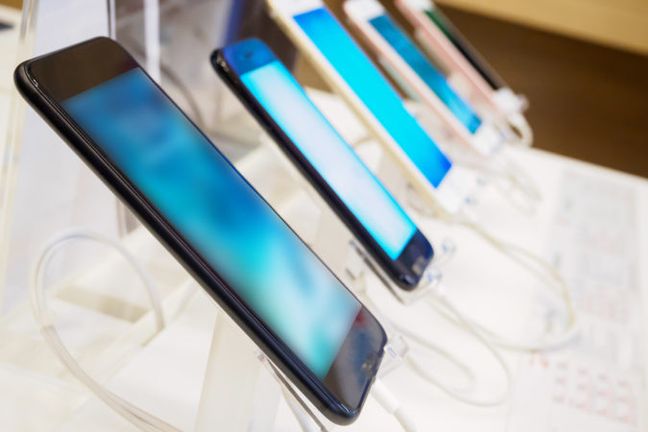In the recently published 4th District Court of Appeal decision (Colucci v. T-Mobile, USA, Inc. (2020) 48 Cal. App. 5th 442, WL 2059849) the court upheld an award of punitive damages against the company based on the conduct of a regional manager who terminated a store manager for cause and without warning based on an alleged pretextual conflict of interest. The Plaintiff alleged the real reason for the termination was retaliation for asking for an accommodation of his anxiety disorder. The court found the discretionary authority invested in the regional manager to deviate from the company’s progressive discipline policy prior to termination was tantamount to policy making thereby exposing the company to punitive damages.
Facts
T-Mobile operates hundreds of retail stores in California. The plaintiff, Stephen Colucci, managed a T-Mobile retail store in Ontario, CA from 2007-2014. Plaintiff reported to Brian Robson a District Manager for the Inland Empire West geographical region. When Robson took over as District Manager his intent was to transfer plaintiff to a kiosk in the Ontario Mills Mall. Plaintiff objected to the transfer claiming he could not work in a busy mall environment due to an anxiety disorder and asked instead to be transferred to another store. Mr. Robson was skeptical of the claim “this is the most ridiculous thing I ever heard” but referred the matter to human resources (“HR”). As requested by HR, plaintiff provided a medical diagnosis confirming his work restrictions. Accordingly, HR advised plaintiff was not to be transferred to a mall kiosk due to a protected medical condition.
In July 2014, plaintiff complained to Robson that one or more sales representatives were spreading defamatory rumors about him. Robson agreed to investigate. However, Robson let the investigation languish telling plaintiff he should “quit complaining” and that he had been “nothing but problems.” Around the same period of time, a sales associate who worked in plaintiff’s store and had been disciplined by plaintiff for work performance issues, reported to Robson plaintiff was operating an outside used car business called Auto Compound. The associate told Robson within the past year plaintiff had been using T-Mobile resources including the fax machine and requiring the associate to answer an Auto Compound cell phone while on the clock at T-Mobile. Robson enlisted a loss prevention manager to investigate plaintiff regarding Auto Compound.
On July 21, 2014, plaintiff called T-Mobile’s “integrity line” where employees could report workplace issues and reported the unresolved investigation of the defamation incident and the workplace environment in the store had been tense and uncomfortable. The following day, Robson and the loss prevention manager visited plaintiff’s store to interview him regarding the Auto Compound business. However, they could not complete the interview because plaintiff complained he was experiencing severe back pain aggravated by anxiety over the work environment due to Robson’s failure to resolve his defamation complaint and belief Robson was retaliating against him due to his medical condition and request for accommodation. Robson approved plaintiff’s request for medical leave and plaintiff left the premises avoiding the interview regarding his side business.
Two hours later and without plaintiff’s knowledge, Robson recommended plaintiff be terminated for cause due to a conflict of interest with his side used car business. In doing so, Robson circumvented T-Mobile’s progressive discipline policy, which would have included a warning before termination. To justify the termination, Robson claimed plaintiff refused to be interviewed about the side business. Two days later after plaintiff had submitted a formal request for medical leave and made another report against Robson on the integrity line, Robson proceeded with processing plaintiff’s termination and sent plaintiff a letter notifying him of his termination effective July 22, 2014 per HR’s instructions.
In February 2015, plaintiff filed a complaint against T-Mobile alleging a cause of action for retaliation in violation of the Fair Employment and Housing ACT (FEHA).
Trial
The case was eventually tried to a jury. The jury heard evidence of the workplace events which led to plaintiff’s termination and evidence of the impact of the termination on plaintiff’s life including the ongoing toll on plaintiff’s mental and physical health and struggle to find comparable employment. The jury returned a unanimous verdict in plaintiff’s favor and awarded compensatory damages in the sum of $1,020,042 as follows: $130,272 for past economic loss; $189,770 for future wage loss; $500,000 for past economic damages and emotional distress; and $200,000 for future general damages and emotional distress.
In a bifurcated proceeding on punitive damages, the parties stipulated the jury would receive evidence of T-Mobile’s financial condition for 2015 and 2016 including total revenue of $32.1 billion with net income of $733 million for 2015 and 37.2 billion with net income of $1.460 billion for 2016. Plaintiff’s attorney argued T-Mobile generated $4 million in one day based on 2016 net income of $1.460 billion divided by 365 days. The jury awarded $4 million in punitive damages and the trial court entered judgment accordingly. After T-Mobile’s motions for new trial and judgment notwithstanding the verdict were denied by the trial court, T-Mobile appealed the judgment.
Appeal/Analysis
T-Mobile’s appeal asked the Court of Appeal to address the following issues: (1) whether Robson was a “managing agent” to support punitive damages against a corporate defendant; (2) whether there was clear and convincing evidence to support the jury’s finding that Robson acted with oppression or malice to support an award of punitive damages; and (2) whether the $4 million punitive damage award was constitutional.[1]
Was Robson acting as a Managing Agent of T-Mobile?
California Civil Code § 3294(a) permits a jury to award damages when there is clear and convincing evidence the defendant is guilty of oppression, fraud, or malice. In the case of a corporate defendant such as T-Mobile, punitive damages are only permitted when the punishable act is performed by an officer, director, or managing agent. Notably the statute does not define the term “managing agent.”
Interpreting the punitive damage statute, the California Supreme Court defined “managing agent” by holding a plaintiff seeking punitive damages against a corporation based on the conduct of an employee “must show the employee exercised substantial discretionary authority over significant aspects of a corporation’s business.” (White v. Ultramar (1999) 21 Cal. 4th 563, 576-577). T-Mobile argued Robson could not be considered a policy setting managing agent just because he deviated from T-Mobile’s progressive discipline policy or communicating with employees on medical leave of absence. The court disagreed relying on Robson’s testimony that he had substantial discretionary authority to override general policies claiming progressive discipline was not always required under the policy and he had discretion to take action based on the circumstances. Robson also testified he could situationally deviate from the policy against communicating with employees on medical leave. The court also was persuaded by the fact Robson suffered no consequences from deviating policies and was authorized by HR to do so. Thus, the court concluded Robson formulated operational policies through his discretionary decisions and was acting as T-Mobile’s managing agent when he terminated plaintiff.
Did Robson’s Conduct Rise To The Level Of Oppression or Malice?
To support an award of punitive damages, plaintiff faced a heightened evidentiary burden to present clear and convincing evidence Robson acted with oppression or malice. (Civil Code § 3294(a). The term “malice” is defined as “conduct which is intended by the defendant to cause injury to the plaintiff or despicable conduct which is carried on by the defendant in a willful and conscious disregard of the rights or safety of others.” (Civil Code § 3294(c). The term “oppression” is defined as “despicable conduct that subjects a person to cruel and unjust hardship in conscious disregard of that person’s rights.” (Ibid.). The term “despicable conduct” has been judicially defined as “conduct which is so vile, base, contemptible, miserable, wretched or loathsome that it would be looked down upon and despised by ordinary decent people.” See (Tomaselli v. Transamerica Ins. Co. (1994) 25 Cal. App. 4th 1269, 1287).
The court found the record supported the jury’s finding of punitive damages. Robson willfully and consciously retaliated against plaintiff in violation of plaintiff’s right to complain of discrimination. The jury could reasonably infer Robson was angered by plaintiff’s complaints and decided to manufacture a reason for terminating plaintiff knowing plaintiff was in a weak physical and mental state. The jury could also find Robson’s conduct in allowing plaintiff to leave the store believing he was permitted to go on medical leave and then use the inability to interview plaintiff regarding his side business to justify termination as despicable conduct.
Was the Punitive Damage Award Constitutional?
The Court did agree with T-Mobile that the jury’s $4 million punitive damage award was constitutionally excessive in violation of the federal due process clause. After performing the judicially recognized reprehensibility analysis, the court concluded T-Mobile’s conduct warranted an imposition of punitive damages for purposes of punishment and deterrence. However, the court found the reprehensibility of T-Mobile’s conduct to be in the low to moderate range of wrongdoing under California law and therefore held a 1.5-to-one ratio between punitive and compensatory damages which was the federal constitutional maximum. The court also believed the jury’s compensatory damage award already contained a punitive component. Accordingly, the punitive damage award was reduced from $4 million to $1,530,063 (1.5 times compensatory damages of $1,020,042).
Takeaway
The Colucci case is an object lesson in the need for companies to consistently enforce and adhere to human resources policies, particularly regarding discipline and termination. One of the primary functions of human resources is to protect companies from liability exposure and company assets from punitive damages typically not covered by insurance. While proper training of managers regarding enforcement of human resources policies is important, what stands out from the facts in the Colucci case is the evidence suggesting Robson had discretionary authority to deviate from company policy based on circumstances. As the Colucci holding demonstrates, companies that allow managers discretion to deviate from established HR policies do so at their own peril.
[1] T-Mobile also argued there was no evidence to support the $200,000 award for future emotional distress. The Court disagreed.

 Author: David Kahn
Author: David Kahn
 Cannabis Workers Allege Quota to Trim 4 Pounds a Day Violates the California Labor Code
Cannabis Workers Allege Quota to Trim 4 Pounds a Day Violates the California Labor Code
 The Ninth Circuit Reminds Us: Every Word Matters
The Ninth Circuit Reminds Us: Every Word Matters
 NO WAY, PRO SE! The Consequences of Abusing the Judicial System as a Pro Se Litigant in Colorado
NO WAY, PRO SE! The Consequences of Abusing the Judicial System as a Pro Se Litigant in Colorado
 Victim of Financial Mismanagement or Unlawful Retaliation? New Jersey City University Program Founder Claims School Retaliated After Reporting Alleged Sexual Harassment
Victim of Financial Mismanagement or Unlawful Retaliation? New Jersey City University Program Founder Claims School Retaliated After Reporting Alleged Sexual Harassment
 “Real Housewives” Gets a Reality Check
“Real Housewives” Gets a Reality Check
 Missing a Chapter: Insufficiency of Expert Deposition Testimony in Medical Malpractice Litigation
Missing a Chapter: Insufficiency of Expert Deposition Testimony in Medical Malpractice Litigation
 Crash Course: Why Summary Judgment Misses the Mark in Illinois Multi-Cause Limousine Crash Collision
Crash Course: Why Summary Judgment Misses the Mark in Illinois Multi-Cause Limousine Crash Collision
 Bitter Truths: Lead, Cadmium, and Defective Pleadings in California Chocolate Class Action
Bitter Truths: Lead, Cadmium, and Defective Pleadings in California Chocolate Class Action
 The Law of Unintended Consequences: Including Insurance Brokers in Litigation Strategy Communication May Waive the Attorney-Client Privilege
The Law of Unintended Consequences: Including Insurance Brokers in Litigation Strategy Communication May Waive the Attorney-Client Privilege
 Supreme Court May Need to Review Covid-19 Loss Coverage in California
Supreme Court May Need to Review Covid-19 Loss Coverage in California
 Howell v. Hamilton Meats & Provisions Continues to Deliver Justice for California
Howell v. Hamilton Meats & Provisions Continues to Deliver Justice for California
 “Take-Home” COVID-19 Cases to Go to California Supreme Court
“Take-Home” COVID-19 Cases to Go to California Supreme Court
 Police Reports Are Often Inadmissible – But Not Always…
Police Reports Are Often Inadmissible – But Not Always…
 California Supreme Court Holds Dynamex ABC Test Applies Retroactively
California Supreme Court Holds Dynamex ABC Test Applies Retroactively
 Medi-Cal Liens Not Preempted by Federal Medicaid Anti-Lien Statute
Medi-Cal Liens Not Preempted by Federal Medicaid Anti-Lien Statute
 Is In-House Counsel’s Legal Advice Privileged in California if Shared with Non-Lawyers?
Is In-House Counsel’s Legal Advice Privileged in California if Shared with Non-Lawyers?
 Reasonable Minds May Differ When it Comes to Interpretation of Philadelphia’s Insurance Policy Exclusions
Reasonable Minds May Differ When it Comes to Interpretation of Philadelphia’s Insurance Policy Exclusions
 Update: California District Court Upholds Previous Dismissal of Wife’s COVID-19 Civil Suit
Update: California District Court Upholds Previous Dismissal of Wife’s COVID-19 Civil Suit